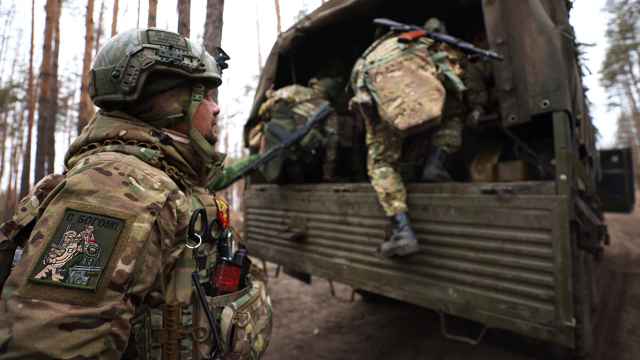Billionaire Mikhail Prokhorov recently gave an interview in Snob, the magazine he owns. He notes that when lecturing he always asks the audience to name the most effective manager of all Russian leaders in the last 500 years. Invariably, the answer is Ivan the Terrible or Peter the Great. But Peter and Ivan are more than effective managers; they represent enduring currents in Russian history.
If Prokhorov can give an interview in his own magazine, I suppose I can quote myself in my own column. In my novel “Zero Gravity,” a 1986 Cold War comedy, an eccentric Kremlinologist reduces “all Russian history to two basic rhythms, which he called the Ivan-the-Terrible contraction and the Peter-the-Great expansion. Russia was either closing in on itself, shunning the world, hating foreigners, purging the bad blood … or else it was expanding, reaching out for the fruits of the West, the fruits of science, which, as bad luck would have it, grew best on the tree of liberty.”
Though that was written tongue in cheek, I find it helps me now in trying to understand the stream of highly disparate events occurring in Russia. Both tendencies are at work and at war with one another, a sharp contradiction as the Marxists were fond of saying. Though that contradiction is part of Russia’s internal dynamic, external forces are also deeply involved. The rise of China is pushing Russia to the West, as is the need to modernize the economy. The power elite created under Vladimir Putin is in no hurry, however, to embrace the West. That means change and risk. They were the beneficiaries of the last upheaval. There’s no guarantee they would fare so well in the next round.
But in Russia there are contradictions within contradictions, and so overly simple generalizations must also be avoided. The anti-immigration nationalists that include “White Power” racists, fascists and skinheads chanted anti-Kremlin slogans at a recent demonstration. The liberal opposition can be as anti-Chinese as many of the rabid nationalists in and out of government.
The Ivan-the-Terrible wing of today’s Russia may have its own contradictions, but there is no question that it opposes the opening to the West associated with President Dmitry Medvedev. That opening includes closer ties with NATO, membership in the WTO, new treaties with the United States on reducing nuclear weapons and the use of nuclear fuel for civilian purposes. Other positive trends include foreign investment in Skolkovo, Russian’s Silicon Valley: Microsoft has pledged tens of millions, and Cisco Systems a billion over a decade. Demonstrations were finally allowed on Triumfalnaya Ploshchad on Oct. 31. Prime Minister Putin approved of an abridged version of Alexander Solzhenitsyn’s “Gulag Archipelago” to be used in the schools. Medvedev banned the sale of the S-300 surface to air missiles to Iran.
And all this is happening at the same time as journalists are being savagely beaten and the law enforcement officials connected to the jail death of Hermitage lawyer Sergei Magnitsky are being awarded medals while Magnitsky himself is being posthumously charged for crimes those officials may themselves have committed.
If unfortunate developments in U.S. domestic politics do not take some of the luster off the West, the contradictions will only become sharper. They will probably culminate in the choice of candidate for the 2012 Russian presidential election.
In any event, too much can be made of the contrast between Ivan the Terrible and Peter the Great. They both killed their own sons.
Richard Lourie is the author of “The Autobiography of Joseph Stalin” and “Sakharov: A Biography.”
A Message from The Moscow Times:
Dear readers,
We are facing unprecedented challenges. Russia's Prosecutor General's Office has designated The Moscow Times as an "undesirable" organization, criminalizing our work and putting our staff at risk of prosecution. This follows our earlier unjust labeling as a "foreign agent."
These actions are direct attempts to silence independent journalism in Russia. The authorities claim our work "discredits the decisions of the Russian leadership." We see things differently: we strive to provide accurate, unbiased reporting on Russia.
We, the journalists of The Moscow Times, refuse to be silenced. But to continue our work, we need your help.
Your support, no matter how small, makes a world of difference. If you can, please support us monthly starting from just $2. It's quick to set up, and every contribution makes a significant impact.
By supporting The Moscow Times, you're defending open, independent journalism in the face of repression. Thank you for standing with us.
Remind me later.





